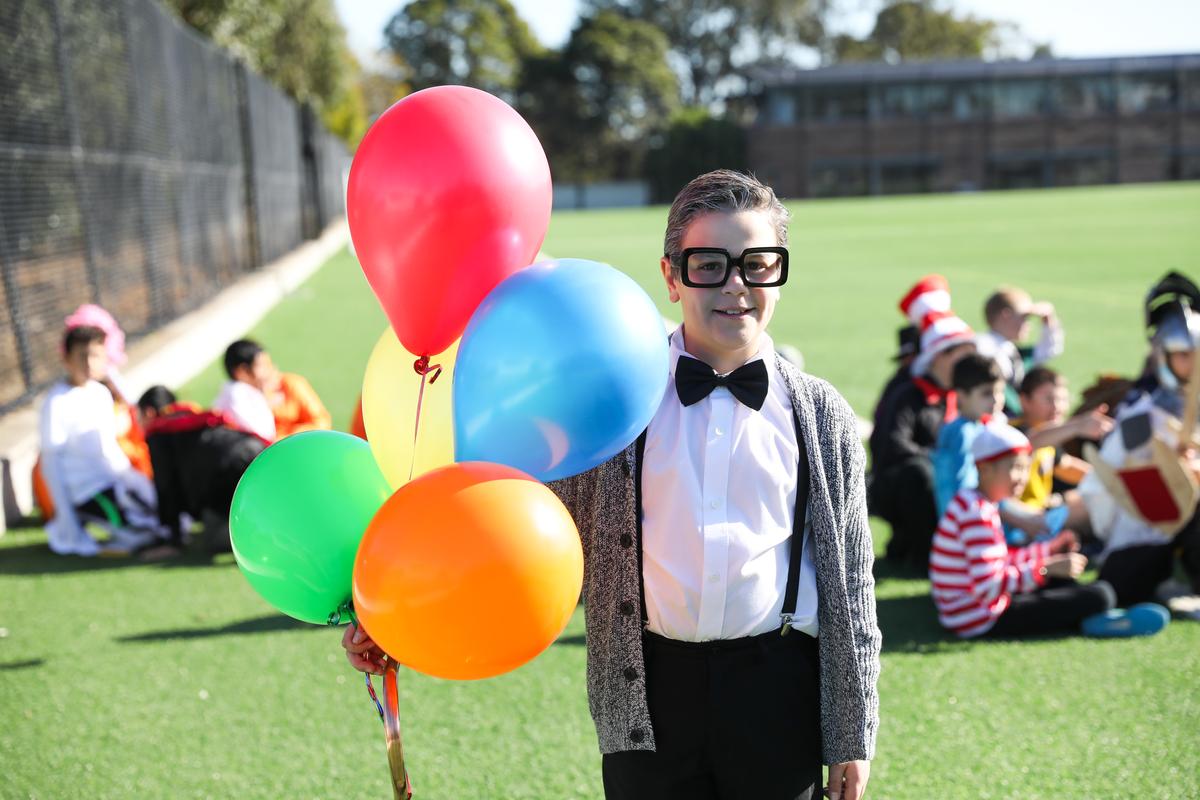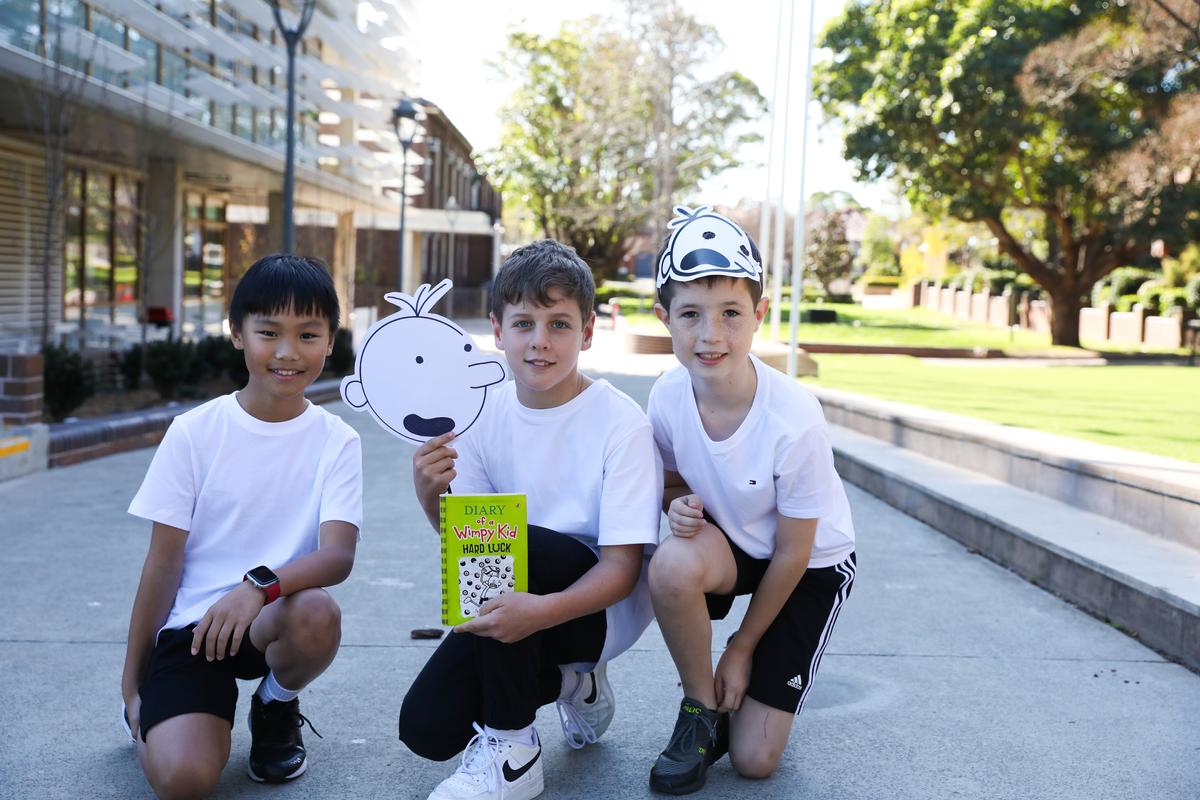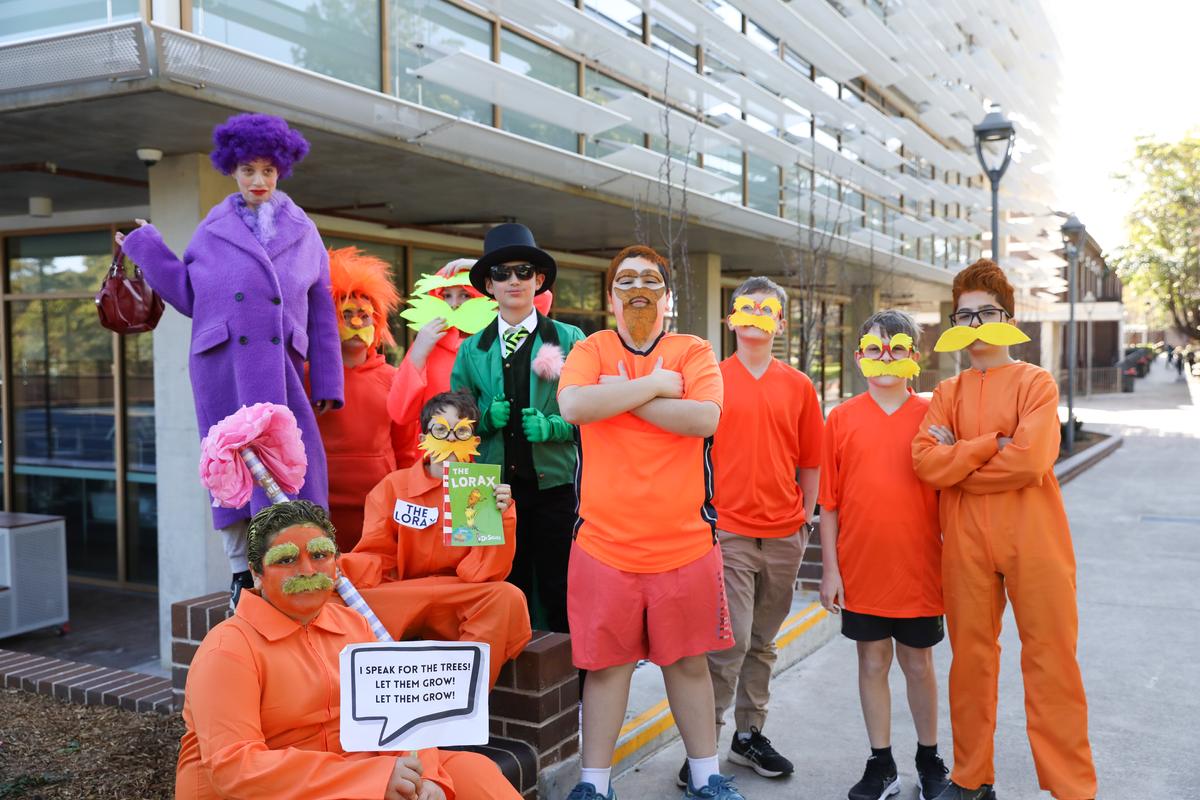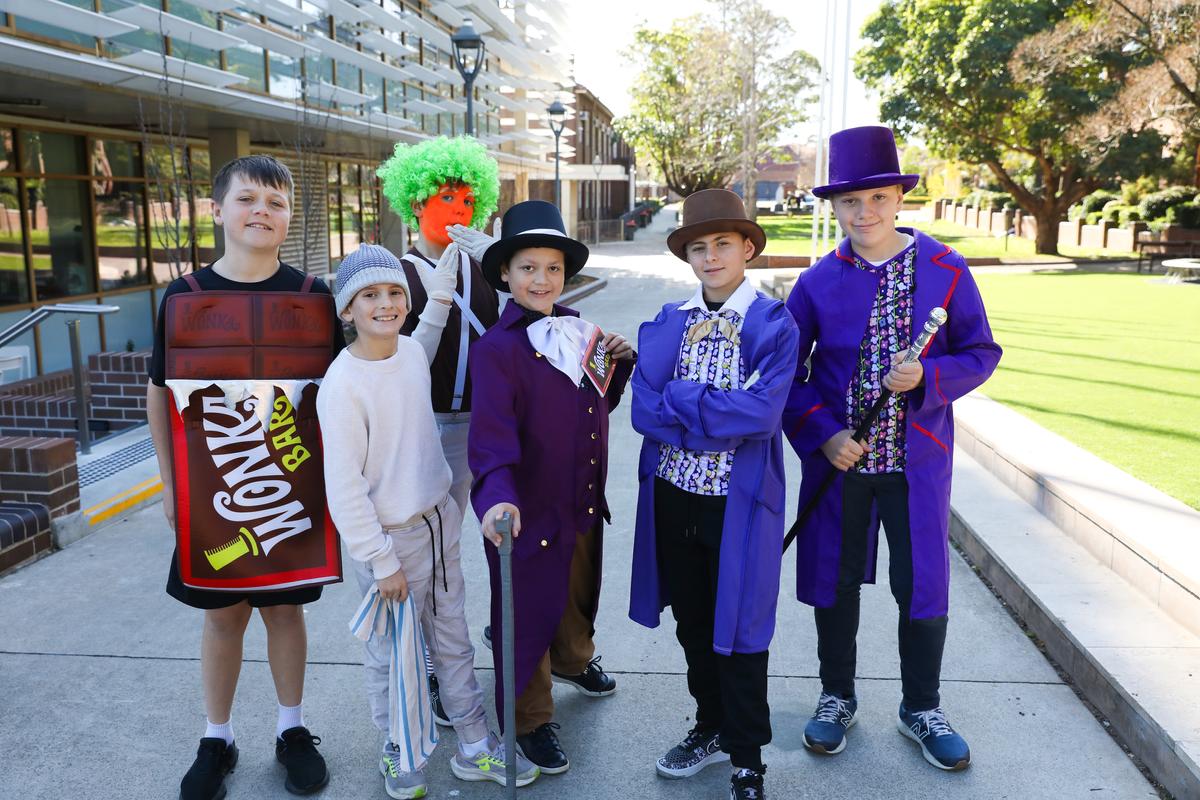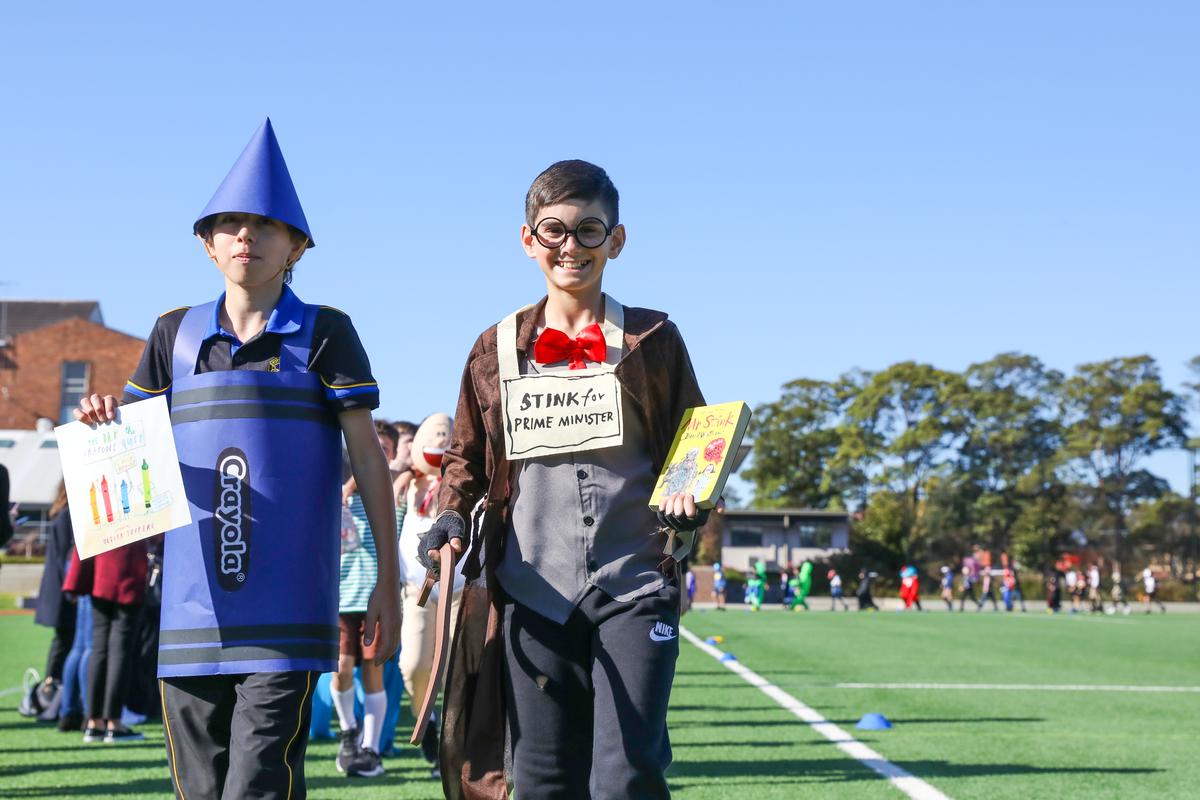Principal

10 ways to help the boys in your life read for enjoyment (not just for school).
Last week, we celebrated Book Week in the College and in the Junior School, both staff and students got into the spirit of things with a parade. Thanks to all of our parents/carers who made the effort to buy or make the costumes. The students I met on the day could all tell me about their favourite book and hard it was to choose just one to represent.
Reading is a critical skill for school and life beyond it. Young people need strong reading skills to learn and demonstrate their learning. Reading skills are not just about performing well in subjects such as English. They are related to performance in subjects like science and maths. When it comes to reading, girls typically do better than boys. This was highlighted by the results of a major international test on reading skills, released in May this year. The Progress in International Reading Literacy Study (PIRLS) test, found Australian girls in Year 4 scored on average 17 points higher than Australian boys. There was also a gap in terms of attitudes to reading. While more than a third of Australian girls “very much like reading” according to the PIRLS study, less than a quarter of boys feel the same.
Research consistently makes a link between students’ reading skills and their attitudes toward reading. If students are more motivated to read, they read more often and build their reading comprehension skills and vocabulary. According to Australian Bureau of Statistics data released this year, girls (aged five to 14 years) are also more likely than boys to read for pleasure (77% compared with 68%). To close the gender performance gap and enhance the performance of boys, we need to get more boys reading for fun.
One reason is boys and girls are brought up differently when it comes to reading.
A 2016 study of Canadian, US and UK parents found they spend more time reading with pre-school daughters than sons. So, while we teach young girls to see themselves as lifelong readers, many boys miss out. Then as children move into primary school, even though boys read less often, they also receive less parental encouragement to read than girls. Some boys think that reading is no longer important for them once they know how to do it.
Parents and carers can play an important role in helping boys see themselves as readers, but once boys can read on their own, this role can be unclear. Like any skill, sustained reading experiences are needed for reading skills to be both maintained and developed. You cannot assume boys have opportunities for sustained reading for pleasure at school when they commence secondary schooling. Here are some steps you can take to encourage the boys in your life to read and improve their attitudes toward reading.
1. Take your boys to the local library
Joint library visits can encourage children to read more often, and as children move through the years of schooling, boys are less likely than girls to visit the library in their free time. Going to the library with your son can help motivate them to read.
2. Encourage reading, even after they learn to read
Make sure your child knows reading is still important even after they can do it by themselves. Keep up the encouragement and encourage boys as well as girls.
3. Keep reading together
Don’t stop reading aloud just because he can read by himself. Opportunities to read with parents can lead boys to have a positive attitude toward reading, and value shared time spent reading together.
4. Talk about books and share book recommendations
Keeping reading for pleasure in focus rather than reading for testing. Some children begin to see reading is something purely done for testing, making reading seem like a chore.
5. Show them you read for fun
The PIRLS report also found a positive link between parents liking books and their child’s reading achievement. So, show your children you read and read for fun.
6. Encourage holiday reading
Encourage boys to read during the school holidays. During these times, children’s reading skills may decline as they are not being sustained and developed.
7. Go to the experts
Not sure what your child might like to read? Ask the teacher librarian at our College (Mr Angelatos and Mrs Gibson). They are experts at connecting struggling and disengaged readers with books that meet their interest and ability levels.
8. Fiction and non-fiction are both great
The stereotype that all boys prefer to read non-fiction is not true. Fiction books offer literacy benefits as well as building social skills such as empathy. That being said, non-fiction is great, too. Reading non-fiction books for pleasure was also recently linked with “high reading performance, especially among the male students”.
9. Dads especially need to read
Fathers and male influences need to play a greater role in encouraging boys to read. While 49% of teens felt their mother encouraged them to read, only 25% of fathers were playing this role.
10. Have lots of books around the house
Having a home with many books (more than 200) is related to reading achievement, and access to books in the home is linked to improved attitudes toward and frequency of reading, particularly in boys.
Finally, it’s important to note while the gender gap in performance and attitudes exists, there are also many girls who are disengaged from reading. More than one in five Australian girls do not like reading. There are also other concerning gaps that deserve our attention related to First Nations background, geographic location, and socioeconomic status. We should encourage all children to regularly read for pleasure so that they can build the strong literacy skills needed to understand and critically evaluate the large volumes of written material they will encounter in their lives today and in the future. (https://theconversation.com)
Staff Changes
We welcome Mr Leon Peterson to the College as our new Mathematics teacher replacing Ms Sarlej.
Mr Steven Fochesato has decided to step down from the position of Director of Co-curricular at the end of 2023 and joins the teaching faculty full-time. He has made an enormous contribution to the College for over two decades. We are currently in the process of recruiting his replacement.
In Memoriam
We keep Charles Bechara (Year 7) and his little brother Marc at St Martha’s (Year 4) in our thoughts and prayers after the passing of his mother Natasha Bechara last Friday. Year 7 have rallied around their friend and peer and the staff is doing all that it can to support Charles at this difficult time.
We were also very saddened by the news that Jenson Andriano (Year 6) lost his maternal grandmother last Saturday after a long illness and in a tragic turn of events, his paternal grandmother, who suddenly passed away the following day. We pray for Jenson and his family in their time of sorrow.
Eternal rest grant unto them O Lord and let perpetual light shine upon them. May their souls, and the souls of all the faithful departed, Rest in eternal peace. Amen. |
|---|
Dr Vittoria Lavorato
Principal
SPC boys can do anything!
**except divide by zero

